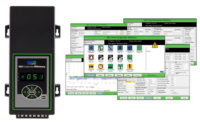The launch of the COVID-19 vaccination campaign in December 2020 led to great relief around the world and was greeted with hope after the virus had affected almost all aspects of life for most of the year. While public discourse focused on the lack of production capacity, another major challenge came into play: the safe transport and storage of vaccines at very low temperatures. Unfortunately, this issue is still highly topical in 2022. The summer wave, combined with the extreme heat and an upcoming fourth vaccination in autumn, continue to require increased vigilance and reliable refrigerated transport.
Despite the adverse conditions, Trane Technologies, with its strategic Thermo King brand, and Danfoss have joined forces to play a critical role in maintaining the cold chain and delivering life-saving vaccines.
The SuperFreezer
Thermo King has long been a global leader in refrigerated transport and storage of food, medicines, and other sensitive, perishable goods. This often involves the use of the powerful, adaptable SuperFreezer solution, which has been co-designed and built with Danfoss since 1996 to achieve ultra-low temperatures and optimal preservation.
The SuperFreezer is typically used for sea transport of sushi-grade tuna, but also for biopharmaceutical products such as blood plasma and other pharmaceutical agents, as well as biological samples. It ensures consistent temperature control, prevention of microbial decay and efficient storage and transport — even under challenging conditions such as high ambient temperatures, frequent door openings, or long operating times.
The SuperFreezer is a cascade system with two refrigeration circuits, each with its own compressor, refrigerant, and inline components, both controlled by a common advanced controller. Each SuperFreezer unit relies on Danfoss inline components such as expansion valves, solenoid valves, regulators, dehydrators, sight glasses, pressure switches, contractors, etc. to ensure smooth and reliable operation of the refrigerant and to maintain the correct cryogenic temperature.
The COVID-19 mRNA vaccines, with their unique ultra-cold temperature specifications — down to -70°C — are ideal for the SuperFreezer. However, the equipment had to be slightly modified to reach and maintain the extremely cold temperatures. Danfoss components played a crucial role in this process.
Many rural hospitals, doctors' surgeries, or clinics do not have access to suitable temperature-controlled storage facilities. Rural regions often do not have a suitable infrastructure to ensure the required cold chain. The situation is also particularly critical in third-world countries, where vaccination rates are still far too low, even 1½ years after the first vaccines were approved.
To reduce the spoilage of life-saving vaccines, active refrigeration like the Thermo King SuperFreezer is the ideal solution.
Supply Chain
"To meet the demands of shipping and storing vaccines worldwide, we had to customize the units and produce them quickly," said Dwayne Cowan, president, Thermo King EMEA and Global Marine, Rail and Air at Trane Technologies. "This meant we had to source additional components supplied by Danfoss in an extremely short time."
Danfoss received its first component order from Thermo King in late 2020, and production was immediately up and running. As the components are manufactured in several factories around the world — in Denmark, Poland, China, Mexico, and India — each factory had to follow the same strict production schedule to meet the demand for the SuperFreezer.
"The entire supply chain had to be accelerated," said Carlos Zamudio, senior director of global accounts at Danfoss. "Instead of a normal eight-week process, production became a three- to four-week process," Zamudio said. "The entire supply chain worked together to produce the parts needed for the SuperFreezer. All Danfoss factories worked together to supply Thermo King and subcontractors with parts."
Initially, the factories had to source sufficient raw materials, which was a challenge due to shortages in the market.
"We were able to leverage our relationships with our suppliers," said Jason Pederson, global key account manager at Danfoss. "We made sure we had enough manpower to complete production. When total customer demand exceeded our production capacity by 25%, we prioritized the products we made for the SuperFreezers."
"We were able to respond quickly," said Zamudio. "Everyone understood the importance of what we were doing. Thermo King relied on us to deliver the components on time. Throughout the supply chain, many companies worked together to ensure the vaccines could be delivered and stored."
"It was critical that there were no delays in production or shipping," Cowan stressed. "The support of Danfoss was instrumental in ensuring that we were able to transport this critical cargo through all the countries in Europe and to many remote locations around the world. The fact that we were able to respond quickly and efficiently to a crisis of this magnitude is a testament to the strength of partnerships like this."
After all components were airlifted to Thermo King, the SuperFreezers were quickly assembled and ready for their life-saving cargo — becoming a vital part of the first mass immunization and pop-up clinics. Due to the urgency, Thermo King transported the parts by air freight from Danfoss' manufacturing and distribution sites in Europe, North America, and Asia Pacific to Thermo King in China.
The last two years have been challenging, but also educational. Thermo King has decades of experience and played a role in safeguarding past vaccines such the one used during the Ebola outbreak in West Africa. Over the past two years, the company has accumulated a wealth of experience that is vital as infections and variant formations continue to rise.







